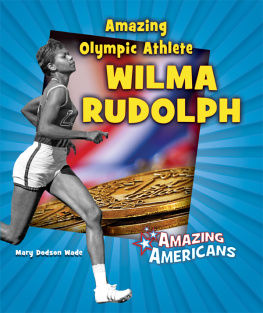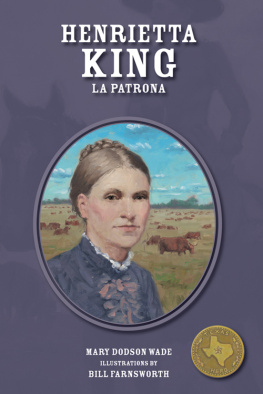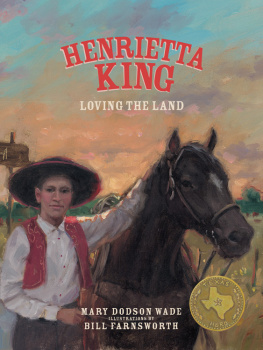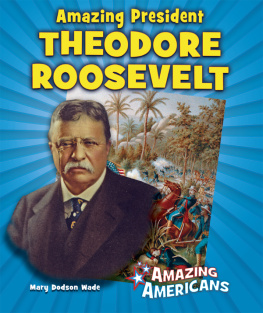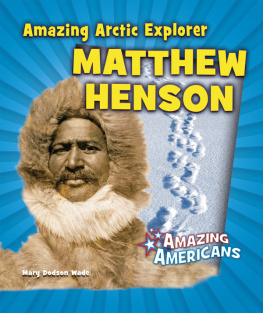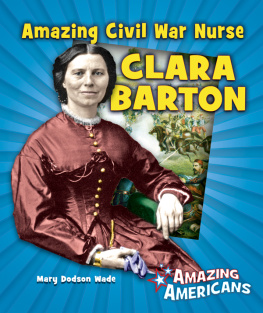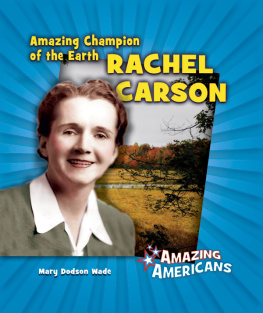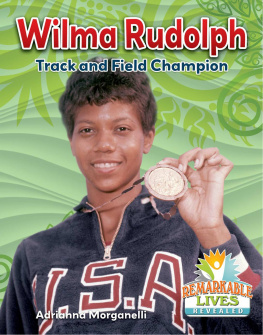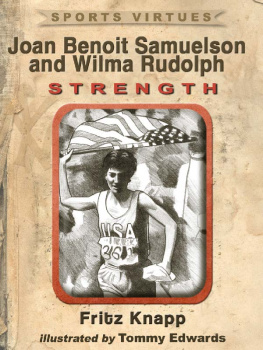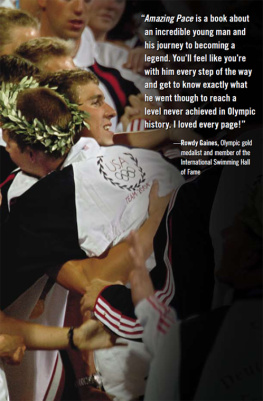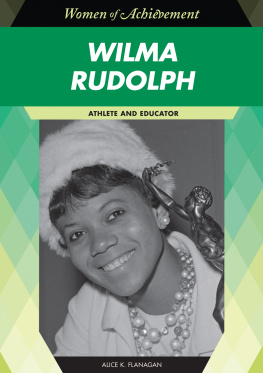Overcoming Obstacles
Read about Wilma Rudolphan Olympic track and field gold medallist who overcame polio to win three gold medals.
Young readers will learn just how amazing some Americans are as they pore over the pages of these biographies.
Allan A. De Fina, PhD, Series Literacy Consultant, Dean, College of Education/Professor of Literacy Education, New Jersey City University, Past President of the New Jersey Reading Association
Her amazing story of faith, persistence and overcoming is timeless. It is her legacy, and this book is a wonderful introduction for young readers to an amazing athlete and courageous woman.
Meredith Rainey Valmon, Two-Time Olympian, U.S. Track & Field Team, MomsTeam.com Track & Field Expert
About the Author
Author Mary Dodson Wade is a book lover, a people watcher, and a compulsive writer. She spent 25 years as an elementary librarian, surrounded by things she loved.
Wilma Rudolph was born in a little town in Tennessee in 1940. Nobody thought the sickly baby would live. But Wilma grew up to become the fastest woman runner in the world.

Image Credit: Topham/The Image Works
Wilma Rudolph with the three gold medals she won at the 1960 Summer Olympics.
Wilmas family was poor. When she was six, she had polio. The disease made her left leg and foot crooked.
Wilmas family helped her by rubbing her leg. They also took Wilma to the hospital to get her help.
All of her familys help paid off. At age nine, to everyones surprise, she took off her brace and walked. By age 11, she was playing basketball at school. Her coach called her Skeeter because he said youre little and fast and always in my way.

Image Credit: AP
Wilma, on the right, standing with her older sister Yvonne. Wilma was six when this photo was taken.
In high school, Wilma became a basketball star. She set the state record for the most points scored in a high school game.

Image Credit: AP
Wilma Rudolph, second from left, holding her bronze medal with her teammates.
Wilma ran faster than anyone else in high school, too. At age 16, she went to the Olympic games in Melbourne, Australia. She and her team won a bronze medal in the 4x100 meter relay.
The track coach at Tennessee State University gave her a scholarship to help pay for college. Wilma studied hard to become a teacher. Her coach made her work hard too.

Image Credit: AP
Wilma, right, came in second to her teammate at this race.
In 1960, Wilma went to the Olympics again. The day before her first race, she hurt her ankle. Wilma raced anyway. She ran faster than any woman ever had before.

Image Credit: Keystone Eyedea/Everett Collection
Wilma Rudolph won the 100-meter race at the 1960 Olympics.
Wilma set a record in her second race too.
In her third race, Wilma was the last runner on her relay team. She almost dropped the baton. Runners from other teams raced by. Wilma ran harder. The judges had to study a picture to see who won.
It was Wilmas team! They had set a world record. And Wilma had won three gold medals.

Image Credit: AP
Wilma Rudolph crossed the line first. Her team won the relay race!
Wilma finished college, then taught school. She later married and had four children. She helped coach young runners. But sadly, Wilma became sick with brain cancer.

Image Credit: AP
Wilma Rudolph graduated from college in 1963. She wanted to be a teacher.
Wilma Rudolph died when she was only 54 years old. Her flying feet were not always so fast. But her hard work and determination made her a champion.

Image Credit: AP
Rudolph, right, hugs Florence Griffith Joyner, another runner. Joyner was a star of track and field. She won four Olympic medals.
Wilma Rudolph was the first American woman to win three gold medals in the Olympics. She said, No matter what accomplishments you make [big things you do], somebody helps you.
Wilmas college track coach was her friend for the rest of her life. Who else helped her?
Wilma Rudolph said, Triumph cant be had without the struggle. She meant that you must work hard to win a race or do a good job.
What things happened in her life to show that is true?
1940
June 23, born near Clarksville, Tennessee.
1946
Learned that she had polio.
1956
Won bronze medal at the Olympic Games in Australia.
1960
Won three gold medals at Olympic Games in Rome, Italy.
1963
Finished college and married Robert Eldridge. She taught elementary school and coached the high school track team.
1994
November 12, died in Nashville, Tennessee.
braceA metal piece put on the leg (or other body part) to support bones or make them straight.
cancerA disease.
OlympicsAn athletic contest held every four years in a different country. Athletes from many nations compete in them.
relay raceA race in which each member of a team runs only a certain part of the distance.
scholarshipMoney given to help a student continue his or her studies.
trackRunning or jumping sports, also the place where runners race.
Braun, Eric. Wilma Rudolph. Mankato, MN: Capstone, 2005.
Krull, Kathleen. Wilma Unlimited: How Wilma Rudolph Became the Worlds Fastest Woman. San Diego: Harcourt Brace, 1996.
Roberts, M.B. Rudolph Ran and the World Went Wild
http://espn.go.com/sportscentury/features/00016444.html
Wilma Rudolph: Overcoming Childhood Handicaps
http://www.olympic.org/uk/athletes/profiles/bio_uk. asp?PAR_I_ID=10427
National Womens Hall of Fame
76 Fall Street

